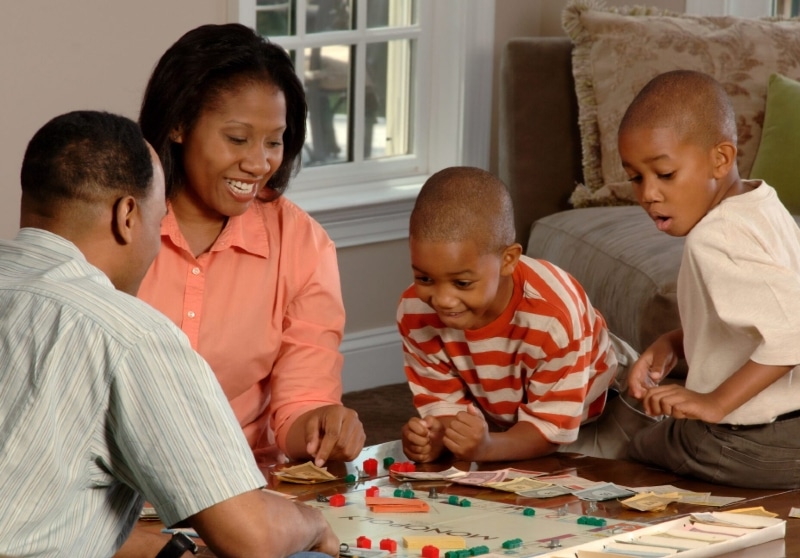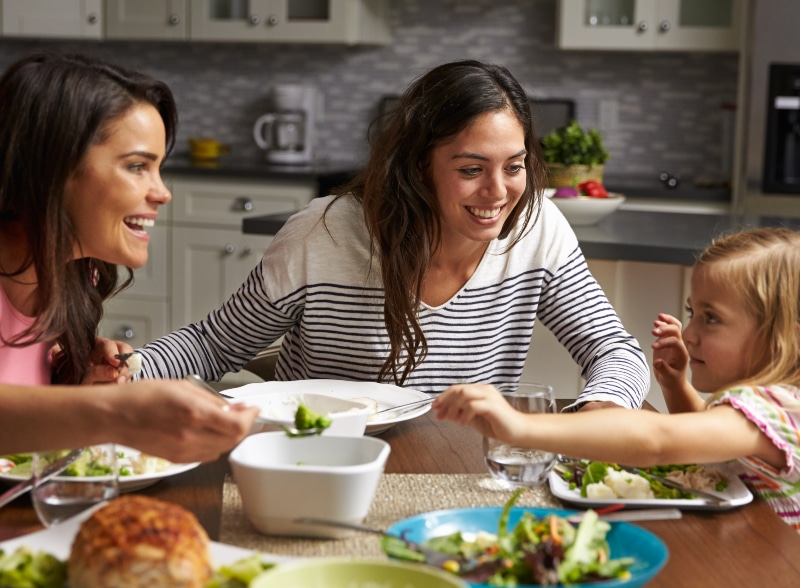Researcher of the Month
How important is dinnertime conversation?
This month, we highlight Mishika Mehrotra, an exciting researcher to look out for in the future! Mishika is a Gates Cambridge Scholar studying within the Centre for Family Research at the University of Cambridge. Her PhD will add new evidence to an existing body of research which focuses on the importance of dinnertime family conversations in children’s development.
Previous research has shown that mealtime conversations are linked to children’s academic achievement, particularly reading and writing skills, and language development. Mealtimes provide a regular and ritualistic opportunity for parents to engage in extended discourse with their children, employ sophisticated vocabulary and use complex sentences (in terms of both syntax and content). Existing studies have also shown that children who have more family meals exhibit fewer internalising and externalising problems (such as anxiety, depression or aggressive behaviour).
Mishika will add to this research by examining the link between dinnertime conversations and the development of children’s executive functions.
Summary
“Executive function” is an umbrella term which refers to the higher order mental processes that we use to manage our thoughts and behaviour in order to meet the demands of any given situation. Examples of this could include overriding our dominant impulses to facilitate the attainment of a goal, shifting or sustaining our attention as required, and holding or updating information in our minds. As well as being a measure of general intelligence, well developed executive functions are associated with a range of positive outcomes for children, including increased social understanding, academic achievement and fewer behavioural or mental health difficulties. Parenting can play a significant role in their development. The link between the quality of parent/child conversations and executive functioning has not yet been examined.
Mishika’s PhD forms part of a large ESRC funded project on school readiness. She is working with 70 families with children aged between four and six, to measure the impact of family conversation at mealtimes. Mishika is obtaining recordings of natural family interactions at home, using a small, unobtrusive recording device which fits into the pocket of a customised T-shirt.
She will assess the quality of these conversations, analysing factors such as whether or not parents are talking at their children, how they respond to their children’s comments and how synchronous their talk is. Mishika will quantify the impact of family conversation quality by meeting with children via video call, where they will play games and carry out tasks designed to assess their cognitive abilities.
Currently, she anticipates finding that parental talk makes a unique contribution to the development of children’s executive functions, above and beyond broader aspects of positive parenting. She also expects to find that the quality of parent/child talk will predict children’s executive functions, over and above the quantity of talk. She hopes to publish her findings in 2024.
Implications
Implications for parents – Regular family mealtimes, featuring positive interactions with your children, are beneficial to their cognitive development and wellbeing. Mealtimes provide a natural context for parents to engage their children in extended conversation and respond to their questions. However, if eating together is not feasible in your home, seek to put aside some other regular time, where you can converse with your child in a similar way. This could, for example, be in the car or whilst you are out for a walk.
Encourage rich conversation by asking open questions and talking about the past and future, as well as abstract ideas and concepts. Aim to use ‘mental state’ language – that which refers to feelings and emotions. We know that mealtime conversations are only beneficial if they are characterised by warmth and positive affect, so try to avoid topics which cause tension or stress.
If you’d like some further inspiration, parents in Tooled Up schools could try some of our dinnertime conversation starters or watch our video on dinnertime debriefs.
Resources Created from and Related to this Research

Mishika Mehrotra, PhD student, University of Cambridge
Mishika Mehrotra graduated with a Bachelor of Science degree in Psychology from the University of Toronto in Canada. Her undergraduate research examined the social and cognitive antecedents of children’s moral emotions and prosocial behaviour. She is now pursuing a PhD at the University of Cambridge as a Gates Cambridge Scholar, under the supervision of Professor Claire Hughes at the Centre for Family Research. Her research interests include finding ways in which parents and caregivers can promote children’s cognitive development and school readiness.









